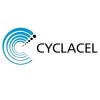
A Trial Testing Early vs Late Onset of EPO Alfa Treatment in Lower Risk MDS
Myelodysplastic SyndromesThis is an open-label, randomized, multicenter, phase III study Patients with baseline Hb comprised between 9 and 10.5g/dl will be randomized to receive EPO Alfa 60000 UI/week for at least 12 weeks: Either at diagnosis Or at the Hb threshold chosen for RBC transfusions (must be < 9g/dl)

A Phase I Study of CYC140, a PLK-1 Inhibitor, in Advanced Leukemias or MDS
AMLAdult7 moreA Phase I Pharmacologic Study of CYC140, a polo-like kinase 1 inhibitor, in Patients with Advanced Leukemias or Myelodysplastic Syndromes

A Pilot Trial of Atorvastatin in Tumor Protein 53 (p53) -Mutant and p53 Wild-Type Malignancies
Malignant DiseaseSolid Tumor4 moreThis is a window-of-opportunity trial to determine if atorvastatin given for 1 to 4 weeks at a dose of 80 milligrams per day (mg/day) is sufficient to decrease the level of conformational mutant tumor protein 53 (p53) in malignant diseases (solid tumor and relapsed Acute Myeloid Leukemia (AML)).

Study of Intensity Modulated Total Marrow Irradiation (IM-TMI) in Addition to Fludarabine/Busulfan...
Acute Myeloid LeukemiaMyelodysplastic SyndromesThe study is a Phase II clinical trial. Patients will receive intensity modulated total marrow irradiation (TMI) at a dose of 9 Gy with standard myeloablative fludarabine/ i.v. targeted busulfan (FluBu) conditioning prior to allogeneic hematopoietic stem cell transplant (HSCT).

Naive T Cell Depletion for Preventing Chronic Graft-versus-Host Disease in Children and Young Adults...
Acute Biphenotypic LeukemiaAcute Leukemia10 moreThis phase II trial studies how well naive T-cell depletion works in preventing chronic graft-versus-host disease in children and young adults with blood cancers undergoing donor stem cell transplant. Sometimes the transplanted white blood cells from a donor attack the body's normal tissues (called graft versus host disease). Removing a particular type of T cell (naive T cells) from the donor cells before the transplant may stop this from happening.

Haplo Peripheral Blood Sct In GVHD Prevention
GVHDAML14 moreThis research study is studying the RGI-2001 for preventing Graft-vs-Host Disease (GVHD) in people with acute myeloid leukemia (AML), acute lymphoblastic leukemia (ALL), myelodysplastic syndrome (MDS), myeloproliferative disorders (MPN), chronic myelomonocytic leukemic (CMML), chemosensitive hodgkin lymphoma (HL), or Non-Hodgkin lymphoma (NHL).who will have a blood stem cell transplantation. GVHD is a condition in which cells from the donor's tissue attack the organs. RGI-2001 is an investigational treatment

Umbilical Cord Blood Transplantation Using a Myeloablative Preparative Regimen for Hematological...
Acute Myeloid Leukemia (AML)Acute Lymphocytic Leukemia (ALL)16 moreThis is a treatment guideline for an unrelated umbilical cord blood transplant (UCBT) using a myeloablative preparative regimen for the treatment of hematological diseases, including, but not limited to acute leukemias. The myeloablative preparative regimen will consist of cyclophosphamide (CY), fludarabine (FLU) and fractionated total body irradiation (TBI).

Randomized Study of Conditioning of Fludarabine Combined With Single or Dual Alkylating Agents in...
Acute Myeloid LeukemiaMyelodysplastic SyndromesFludarabine and busulfan becomes standard conditioning regimen for adult patients with acute myeloid leukemia (AML) or myelodysplasia syndrome (MDS). The overall relapse rate is 15~20%. More recently, the investigators demonstrated that conditioning regimen with dual alkylating agents consistent of fludarabine, busulfan and melphalan achieved a low incidence of relapse (<10%). This multiple-center randomize study is aim to compare the transplantation outcome in adult patients with AML/MDS undergoing allo-HSCT with conditioning regimen of Flu-Bu4 vs. FLu-Bu-Mel.

Repurposed Drugs to Improve Haematological Responses in Myelodysplastic Syndromes
Myelodysplastic Syndromes (MDS)Over 7,000 people in the UK are living with Myelodysplastic Syndromes (MDS). Approximately 1,600 of these individuals (23%) die each year from their disease. MDS affects the production of blood cells by the bone marrow, causing chronic fatigue, bleeding, and recurrent infections. Many patients die because their disease transforms into acute myeloid leukaemia (AML) an even more aggressive blood cancer. The general outlook for AML is poor, but when AML arises from MDS it is worse. REPAIR-MDS seeks to repurpose existing drugs in order to dramatically improve the outlook, health and quality of life of people with MDS. The trial treatments aim to improve the production of healthy functioning blood and immune cells that will fight against infections and boost the immune system's action against the MDS clone. REPAIR-MDS design is a is a multicentre open label phase 2 randomised controlled trial which will compare VBaP (sodium valproate, bezafibrate, medroxyprogesterone) with danazol in patients who have received either Erythropoiesis Stimulating Agents (ESAs) and lost response, not responded to ESAs or are deemed unlikely to respond to ESAs.

A Phase I Open-Label Dose Escalation Study of Intravenous INKmune In Patients With MDS or AML
CancerMDS-EB3 moreINMB-INB16-002 is a Phase I open-label, dose escalation study of INKmune therapy in subjects with myelodysplastic syndrome (MDS) with excess blasts without Auer rods (EB-1 or 2, or CMML 1 or 2) or subjects with acute myeloid leukaemia (AML) in complete remission.
